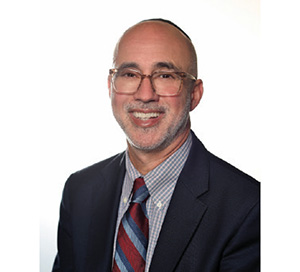
This week’s parsha, Ki Tavo, ends with the declaration, “Yet, to this day, the Lord has not given you a heart/mind to understand, or eyes to see or ears to hear.”
Our commentators, however, considered this verse to be more of a question: “You saw all that God did for you when you were in Egypt—the sign and wonders; did He not give you heart, eyes, ears?”
Abarbanel, the 15th-century Biblical scholar asked, “Wasn’t the people’s rebelliousness prompted by God? He answered his own question with, “All is in the hands of heaven save the fear of heaven.” God may be the prime cause of things—but free choice is given to man. Abarbanel goes on to say that the Israelites perceived all that had happened and the people were given the chance, through these experiences, to ground themselves in faith and obedience to God. They did not and they failed to learn the lessons of God’s actions and the miracles performed on their behalf. The innate abilities were there for them to learn and understand; however, they chose otherwise.
It is at this point that we detect Moshe’s exasperation as he addresses the Israelites, listing the blessings the people would enjoy if they kept God’s commandments, and the punishments they would inevitably suffer for disobeying them. It is clear, however, that they still had not fully learned what was expected of them, and did not fully appreciate all that God had done—hence this reminder lesson and what is apparently a renewal of the brit milah (the sign of the covenant between the Jewish people and God).
Had the 40 years in the desert taught them that there are consequences for their choices—blessing or curses? At the end of this week’s parsha they are again reminded to “observe faithfully all the terms of the covenant that you may succeed in all that you do.”
The message is undeniably clear: Life comes with choices and consequences!
We are reminded of this every single day when we recite the first paragraph of the Shema.
“And these words that I command you this day shall be on your heart.” The Kotzker Rebbe points out, “We teach our children truths and values every day; surely they should be in our hearts (not on).”
From these words we learn that our hearts are not always open. So for all of us, we need to learn and relearn, repeat what we learn, and then, in the moments when our hearts are open, wisdom will sink in.
Like the Israelites and everyone else, we choose if and when we want to be receptive; we are free to decide when we want to open our hearts to knowledge, truth, goodness and doing the right thing.
As Jewish parents we need to model the behaviors we want our children to emulate and we must repeatedly create opportunities for learning, for we can never know when the heart will be open, when the choice will be to let it in. The same must be consistently reinforced in our Jewish day schools and yeshivot.
Rabbi David Wolpe wrote, “Part of the task of education is to emulate the quarterback; he throws the ball ahead of the receiver who is in motion. We need to teach ahead of the life experience of children. They are constantly in motion and will catch the wisdom if we pitch it a few steps ahead.”
I think that speaks to us as well: We too are in motion, and we all still have much to learn. God gave each of us a heart to understand, eyes to see and ears to hear. It is up to us to use them for good—to make choices that will make a positive difference and lead each of us to blessings and success.
This time of year keenly reminds us that we are responsible for our choices and that there are consequences to the choices that we make.
How far have we come since the generation that left Egypt? Are we any better at making the right choices and acknowledging and accepting responsibility when we don’t?
I often wonder why is it so hard for many people to accept responsibility, to acknowledge a mistake or to simply say, “I was wrong; I am sorry.”
Is it fear of failure? Arrogance? Ignorance? Stubbornness? Is it fear that people will no longer like or respect us? Why do some parents today feel compelled to “rescue” their children from accepting responsibility for their actions, and what are the long-term consequences for such parental behavior?
Is it easy for me to admit a mistake, or acknowledge I was wrong?
I have struggled with this through the years, as I am fairly certain most of us have. It is indeed challenging and difficult to open our hearts, eyes and ears.
Accepting responsibility, saying sorry, admitting to having a closed heart is not easy for many, but it opens us up to remorse and teshuva, which then leads us back to the right path and to an open heart.
This is a struggle worth embracing. Wisdom, like a football flying through the air, may always be a few steps ahead of us; but if we keep in motion—learning, striving to do what is right, good, just, and compassionate—we will catch that wisdom from time to time in—not on—our open hearts.
By Steve Freedman
Steve Freedman is the head of school at the Solomon Schechter Day School of Bergen County.









